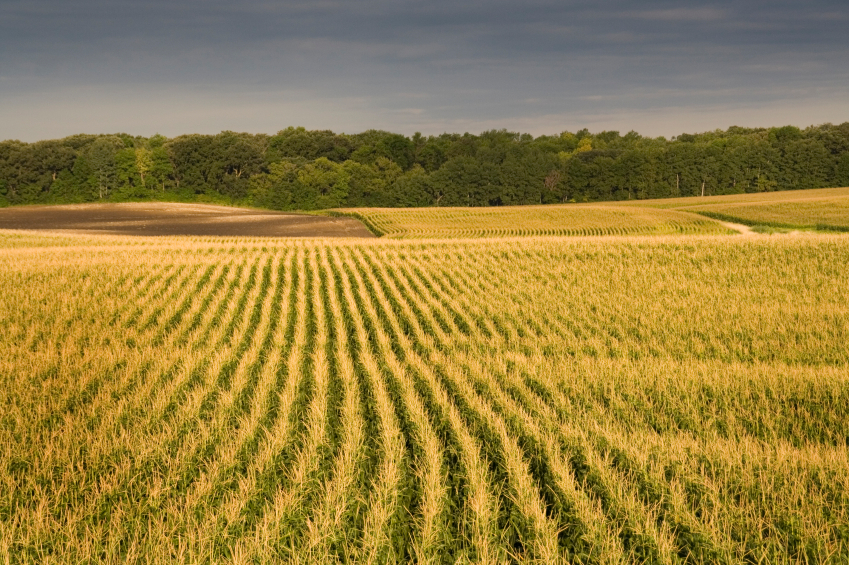This morning the House Agriculture Committee released the 49-page Peterson amendment to the Waxman-Markey climate bill. It has been a laborious task, requiring dozens of closed door meetings, compromises (almost entirely at the expense of Waxman who has worked so hard to keep the bill strong), and eventually a very happy Chairman Peterson and House Agriculture Committee. As I combed through the amendment this morning, I was delighted to see a variety of inclusions that are positive and were advocated for by progressive environmental, consumer and farmer organizations. Yet many are problematic for a climate change bill that, let’s not forget, is ultimately supposed to, above all else, reduce greenhouse gas (GHG) emissions to protect the environment and public health.
First and foremost, the bill reverts back to the original draft discussion, which explicitly exempted agriculture and forestry from the definition of capped sector. In the latest versions of the bill such language was dropped, leading some to speculate that in theory, large scale factory farms could potentially be regulated under the bill. Not true anymore.
Yet the most significant change is how much power the amendment gives to the Secretary of Agriculture, who is now exclusively and completely in charge of the entire offsets program, taking the responsibility from the EPA administrator, as has always been the case in the bill until now. It gives the Secretary of Ag the ability to basically determine what an offset is — the standards, methodologies, etc. This is problematic not because I believe that USDA employees or the Secretary of Agriculture don’t understand life cycle analysis’ (LCAs), methodologies or science, but because the mission of the USDA is not to protect the environment or public health, as is the goal in reducing GHG emissions. The two just don’t align quite right.
It is unfortunate that a compromise could not be worked out where both the EPA and the USDA shared responsibilities of such a program. The EPA could use its mandate for environmental protection to determine scientifically the types of offset programs that reduce GHGs, and the USDA could use its vast expertise and established relationships within the farm community to implement the program, oversee its third party verification processes, and monitor the changes.
The amendment goes one step further and actually begins to spell out the types of practices that should be eligible for offsets. So even though the Secretary of Agriculture is supposed to create this list after the bill (ideally with scientific input) it mandates that there is a “minimum list of what should be eligible for offsets”. Among the eligible:
- Altered tillage practices
- Winter cover cropping, continuous cropping and other means to increase biomass returned to soil
- Reduction in nitrogen fertilizer use or increase in nitrogen use efficiency
- Reduction in the frequency and duration of flooding of rice paddies (which creates methane)
- Reduction in carbon emissions from organic soils
- Reduction in GHGs from manure and effluent
- Reduction in GHGs in animal management practices including dietary modifications
- Waste aeration
- Biogas capture and combustion
- Field application of manure instead of commercial fertilizer
It is an impressive list, and I commend the committee and Chairman Peterson for including a variety of progressive, organic-style practices including cover and continuous cropping and reducing or eliminating synthetic fertilizers. But the list is premature since it doesn’t necessarily indicate what types of practices within this list are actually appropriate. For example, “waste aeration” is a fairly broad term. In reality what it means is not pooling manure together into lagoons and pools as is typical on large scale factory farms or concentrated animal feeding operations (CAFOs). When manure pools together in this way, it decomposes anaerobically (i.e. without oxygen), producing excessive and unnecessary methane emissions. So the solution is actually more or less to raise animals on pastures where their manures are deposited and decompose aerobically, producing minimal methane emissions. But this list doesn’t go into that detail.
Same with the animal management practices, including dietary modifications — this could mean feeding animals on natural forages (grass-fed), which in a variety of studies has reduced methane emissions by about 20 to 25 percent. Or, it could mean something as far fetched as genetically engineering our animals to produce less gas. It’s just not clear. Hopefully such distinctions will be clarified later on.
But aside from the list of mostly progressive offsets, the amendment takes a turn for the worse in the later pages, morphing into blatant handouts without proven climate benefits and caveats which illuminate how industrial agriculture interests are overtaking environmental interests in a bill that, again, is fundamentally meant to reduce greenhouse gas emissions.
The amendment establishes a GHG Reduction and Sequestration Advisory Committee with 9 members, including a chairperson and vice chairperson, both appointed by the Secretary of Agriculture. The amendment simply says that those on the committee need to have the experience to be able to understand the science of the issue. It does not state that a diverse group of vested stakeholders should take part, and even worse, makes no explicit request that other government agencies be involved. A GHG Reduction Advisory Committee that doesn’t include the EPA, or the Departments of Labor, Commerce and Interior for that matter, just doesn’t make sense.
The amendment also addresses the hot topic of international indirect land use change and its inclusion or not in LCAs of biofuels. Failure to include all types of emissions generated throughout the process of biofuel production is not a complete and accurate portrayal of the overall net emissions gained or lost. Yet, the bill exempts such emissions from being included for the next five years while a study is conducted and then gives further veto power to the USDA and EPA jointly to reject such emissions from LCAs. All the while, offset projects would be marching forward potentially on false climate premises without including such emissions. The potential result is very real — offset programs and biofuel production practices that are actually creating more greenhouse gas emissions — the result of a bill that is supposed to stop this very practice.
But, just in case there was any question about how biodiesel (mostly soy based) might fare in an LCA regardless of international indirect land use change, the last step of the amendment is to grandfather in a billion plus gallons of the stuff so it can continue to be produced despite whether or not it might actually be worse for the climate. If you’re wondering why biodiesel and not ethanol, that one was already covered and grandfathered in during the 2007 Energy Act. So, even if this bill passes, all of the ethanol and biodiesel with questionable climate benefits can still continue to be produced without a problem. It’s really no different than grandfathering in the dirtiest coal power plants.
I want to congratulate the Peterson amendment for the positive things it does do — consider numerous progressive agricultural practices as part of a comprehensive climate bill. I recognize just how powerful that is and I certainly do not want to underplay such inclusions. Progressive farmers absolutely must play a role in the climate change debate and mitigation strategies — no doubt. But to create an amendment that does so and then turns right around and grandfathers in questionable biofuels, pushes aside science and doesn’t include other government agencies in its GHG Advisory committee is counterproductive to the point that I have to wonder how effective the amendment will be in achieving the overall goal of the Waxman-Markey bill.



